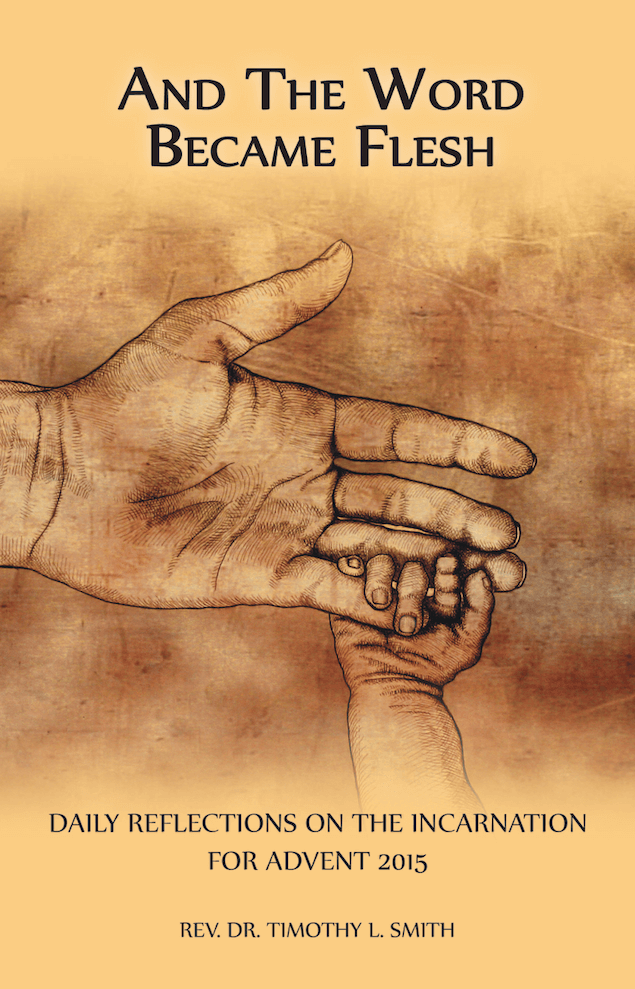The Sixth Day of Advent
Since, therefore, the children share flesh and blood, he himself likewise shared the same things…Therefore he had to become like his brothers and sisters in every respect.
Hebrews 2:14, 17
“Away in a Manger” was one of my favorite carols when I was a child, and still is a favorite of mine today. It was a song that I sang with wonder and reverence and the surety that, unlike me, the “little Lord Jesus no crying he makes”. I sang the song not yet knowing about Jesus weeping profusely at the tomb of His friend Lazarus (John 11:35), crying over rejection by His people (Luke 19:41), or throwing Himself on the ground in feverish spiritual turmoil (Matthew 26:39).
Believing in Jesus as the Son of God and fully divine, I felt uncomfortable thinking of Him as crying or as fully human like me. Sometimes we have such a high view of Jesus that we forget that He too is really human. We imagine Him as a superhero, disconnected, not in touch with life as we live it.
This skewed way of thinking about Jesus is, in fact, nothing new. The original false teaching about Jesus came in the first century: a denial of His full humanity. This false teaching was called Docetism (from dokeo, the Greek word for “seem” or “appear”) and taught that Jesus only “seemed” or “appeared” to be human. Docetism was an accommodation to the Greek culture that said that the Creator of the universe, the Logos, would never stoop so low as to become human.
But Christ’s apostles and the early church roundly condemned Docetism, and the apostle John sternly warned: “Many deceivers have gone out into the world, those who do not confess that Jesus has come in the flesh; any such person is the deceiver and the antichrist!” (2 John 7) One of the reasons Christians celebrate Christmas today goes back to the first centuries as Christians eagerly affirmed that God really was born into our world.
Today’s text from the New Testament book of Hebrews says that in God’s plan the Son of God “had to become like his brothers and sisters in every respect.” I am struck by the phrase, “in every respect”. That means there is nothing human that is foreign to Jesus. He is no stranger to what we are feeling, thinking or suffering. That is because you and I “share flesh and blood, he himself likewise shared the same things.”
It is noteworthy that the same book of Hebrews that has so much to tell us about the humanity of Jesus also boldly affirms His full and absolute deity. The opening verses of Hebrews exult in Jesus’ divinity:
In these last days God has spoken to us by a Son, whom he appointed heir of all things, through whom he also created the worlds. He is the reflection of God’s glory and the exact imprint of God’s very being, and he sustains all things by his powerful word. When he had made purification for sins, he sat down at the right hand of the Majesty on high (Hebrews 1:2-3).
Theologians have been kept busy for thousands of years trying to fathom the deity and humanity of Jesus. But how can we comprehend the Infinite who becomes an Infant!
When we think of Jesus’ great sacrifice we usually think of His cross. Yet the eternal Son of God becoming human is sacrifice beyond human comprehension. We recognize the limits of language in trying to tell it. Theologian Wayne Grudem reflects on the wonder of God becoming “like his brothers and sisters in every respect”:
It is by far the most amazing miracle of the entire Bible – far more amazing than the resurrection and more amazing even than the creation of the universe. The fact that the infinite, omnipotent, eternal Son of God could become man and join himself to a human nature forever, so that infinite God became one person with finite man, will remain for eternity the most profound miracle and the most profound mystery in all the universe. (Wayne Grudem, Systematic Theology)
Infinite and Infant! This is something to ponder and be amazed!
PONDERINGS
- Along with declaring the deity of Jesus, the apostles and early church declared His humanity. Why is it important for us today to continue to affirm His humanity?
- What do you want to say to Jesus about His full and complete likeness to you and me?
EMBODIED PRAYER: STANDING
The most common prayer position in the Old and New Testaments was standing with eyes open looking upward, and raising arms with open hands. It is a prayer position practiced by the Lord Jesus (Luke 9:28-32; John 17:1). Ancient Jews called this position the Amidah (“standing prayer”); early Christians knew it as the Orans (“praying”) position. This standing prayer is seen on wall drawings in the catacombs in Rome, and is the posture recommended by early Christian theologians and Church Fathers.
Just as we stand to express respect and awe in our culture, so we stand to embody our respect and wonder at God’s majesty and greatness. We raise open hands towards Him ready to receive, and open our eyes towards Him as the source of all life and goodness.
Today and every day of this first week of Advent, pray the Lord’s Prayer:
- Standing
- Open hands raised towards heaven
- Open eyes looking expectantly to God




